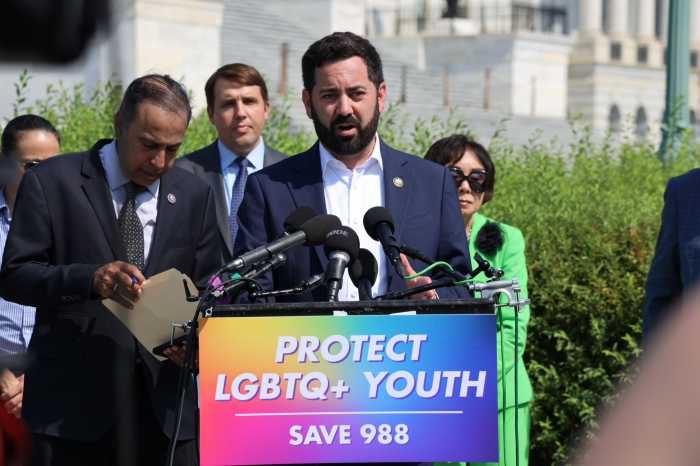As the weather warms in these summer months, many have noticed an increased presence of panhandlers throughout the city.
It’s an issue city officials have noticed as well, and they have come up with an alternative way to allow Philadelphians to help those in need. And it could also help make a dent in the ongoing opioid crisis that has impacted the lives of so many.
The program is the new Text-to-Give campaign that will allow anyone to donate $5 via text message to be used in programs that help the homeless, organizers said. Those who work closest with the city’s homeless population are hopeful that the plan will make an impact on panhandling throughout the city.
According to Liz Hersh, director of the city’s Office of Homeless Services, the city has already set aside $25,000 in funds and plans to match all donations until they have a total of $50,000. Then, she said in a recent interview, the city will put out an open call to nonprofits in search of innovative ideas to address panhandling and homelessness in the city.
“[We want] to try things that we haven’t before or give funding to programs that are working, in order to expand them,” Hersh said.
Already, the city has received about $665 in donations from a total of 133 individuals, with some even calling to ask how to donate more, organizers said. Hersh said that when they reach their goal, the funding will likely be spread as small grants to two or four different nonprofits.
But why is it important to have a single repository for donations? Using the phone to donate could seem like an extra step to take when you’re faced with someone on the street asking directly for spare change.
According to Marsha Cohen, executive director of the Homeless Advocacy Project – who helped organize this donation effort – the idea is twofold. One, it makes sure the money you donate is used for services that support the homeless. For instance, Cohen said, there’s not only the fear that any money you give directly to a panhandler could be squandered on drugs or alcohol, but often teams of scam artists collect money under the guise of being needy panhandlers.
“A lot of that money doesn’t even go to the people you give it to,” she said.
The second benefit of texting in a donation instead of giving cash on the spot, Cohen said, is that individuals who are involved in panhandling might then go to a shelter for food – something they may not have done if they had cash on hand – which allows trained professionals to intervene in that person’s life, something that could be a lifesaver for those caught in the grip of addiction.
“If they come in for a meal, we have that chance to confront them and intervene,” she said. “This is a way to address this opioid crisis.”
At One Day at a Time, a Kensington-based nonprofit that works with homeless individuals suffering from addiction and AIDS/HIV, Program Manager Job Suender said the text-to-donate plan could be a way to improve services throughout the city, while also making it harder for those who panhandle to obtain drugs.
“If you’re just handing somebody money, you never know what it’s going to be used for,” he said. “This way, [programs for the homeless] can keep the lights on and the heat on in the winter.”
To Emily Taylor, director of One Step Away, a local newspaper aimed at helping the homeless, the text-to-donate idea is another example of how the city is working to help those in need.
“It’s really a matter of bringing all of the resources together,” she said.
In fact, Taylor said, in July’s upcoming issue of One Step Away, a homeless individual has written an article talking to others in the same situation about their hopes for the newly launched text-to-donate program.
“It gives a homeless perspective on the issue,” she said.
To donate $5 to the Mayor’s Fund for Philadelphia to help the homeless, text the word “Share” to 80077.





























